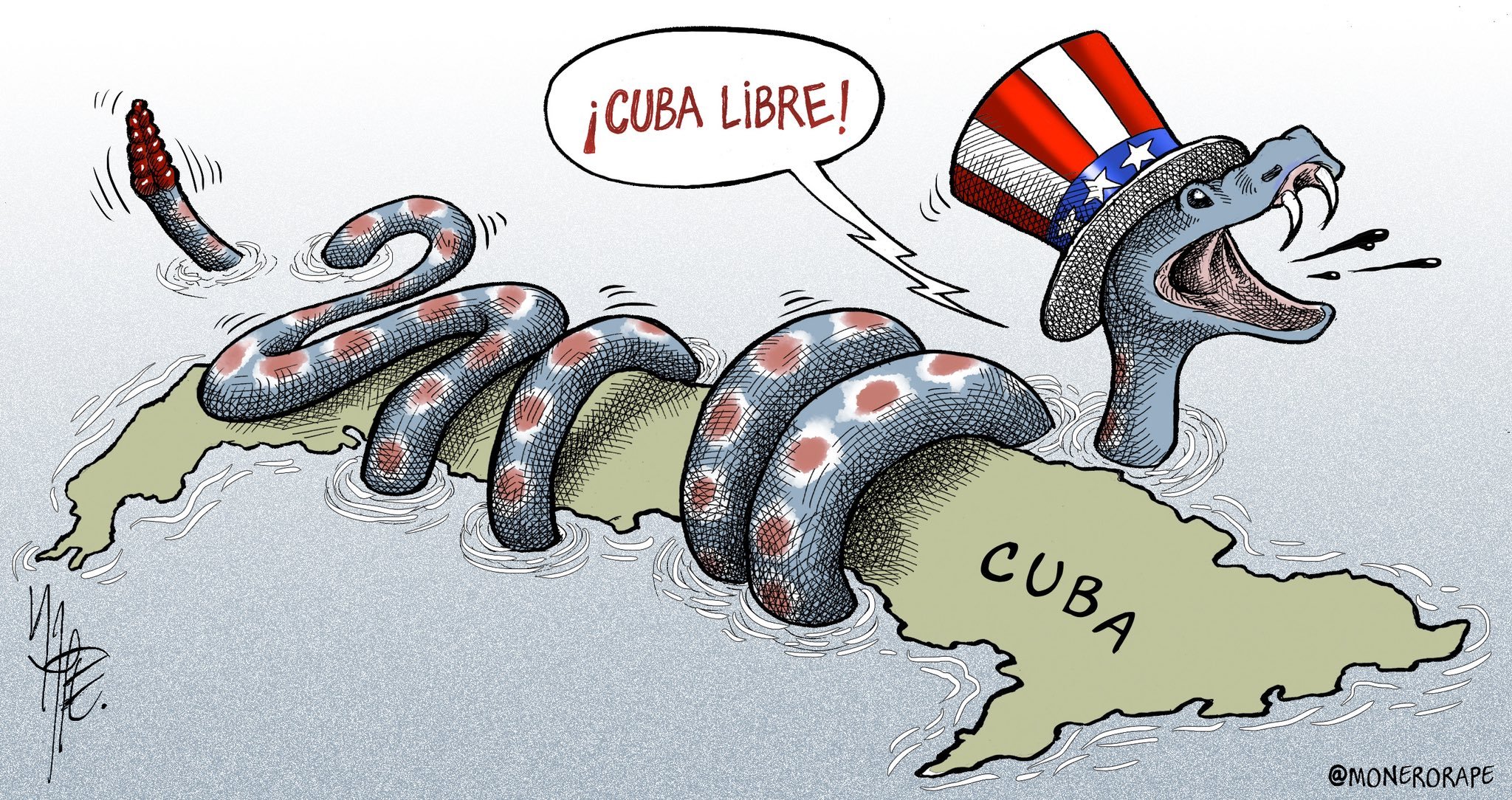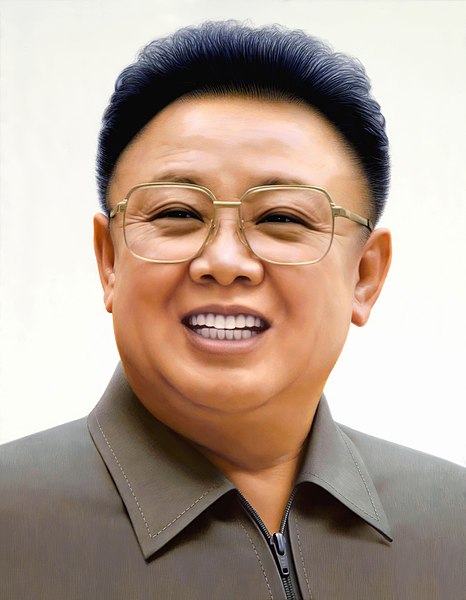“China arms auti communist regimes” had been sprading in Chinese Internet since several years ago. But in fact China’s aid to Philippines was to fight against an Islamist terrorist organization “https://en.wikipedia.org/wiki/Maute_group”. I don’t know how could a islamist organization become “maoist organization”. Also I was banned on https://lemmygrad.ml/c/hoxhaism for repeating deleted comment. I accept but I think Wisconkom should treat himself with the same standard. He circumvented the ban by creating a new account. He should be treated with the same standard.
Putting the other argument aside, the region surrounding China is diplomatically delicate. Openly announcing support for the Filipino Maoists would jeopardise relations with a country that is presently wavering between China and the US. The Chinese government counts on the present capitalist government in the Philippines for, amongst other things, support in its effort to dismiss western allegations about the Uighurs. Given how the diplomatic concern trolling over Xinjiang is the west’s newest front in their campaign to destabilise China, an argument could be made that its own national affairs take precedence over the revolutionary struggle of the CPA. It would be a different matter entirely if China was secure from western-backed separatists and encirclement from US client states, but this evidently isn’t the case.
Removed by mod
At present, it is very difficult for China to interfere in the internal affairs of any country. If China interferes in the internal affairs of any country, other countries can legitimately interfere in Xinjiang, Tibet and Taiwan.
There’s a lot more at stake than just Chinese-US relations in the event that China began exporting weapons and other material support to communist movements around Asia.
With the exception of Vietnam and Laos, China’s neighbours are all capitalist states. Of particular diplomatic interest are:-
-
South Korea, a capitalist state which enjoys an important and extensive trade relationship (China absorbs >25% of SK exports, making them their biggest trading partner), but is still nonetheless hosting an occupying US military force, including the installation of THAAD anti-missile weapons intended to neutralise the Chinese intermediate missile deterrent. The historical antagonism between south Korea and China has been steadily tempered through the incentives that stem from their burgeoning trade relationship, but it doesn’t change the fact that relations are still complicated by the presence of US armed forces and the frozen conflict with North Korea. Were the Chinese to start arming the Filipinos, the North Koreans would surely expect more arms and aid as well, which risks ostracising the South and driving them further into the arms of the United States. Support for communist causes in South Korea would likewise give South Korea reason to push back against further constructive relationships with China.
-
Japan, the US’ primary lilypad in the far East, now shares very deep trade relations with China, just as it does with Korea. Despite large scale trade sweetening their relationship somewhat, Chinese-Japanese relations are strained by disputes over islands in the south China sea. Open Chinese support for communist dominance in east Asia will boost the already paranoid atmosphere between both countries to new heights, justifying the continued American military presence at bases in Okinawa and mainland Japan, as well as helping Japanese ultranationalists in building the case for the repeal of Article 9 and the reconstruction of aggressive Japanese armed forces in the pacific.
-
Singapore, home to the US’ main naval base in the pacific, likewise has a similar balancing act in place. Antagonising Singapore in this way could run the risk of seeing them restrict the flow of Chinese trade across the strait of Malacca, the seaborne trade route that presently carries ~33% of Chinese exports to markets out west. It goes without saying that a renewed open class struggle in Asia would spook the government of this most fundamentally capitalist of Asian states. If I was in their shoes, I’d also start reconsidering the long term outlook of whether or not to align with a state that is exporting a movement that would topple their establishment.
So with all this considered, the relationship between China and the capitalist Philippines has ramifications beyond just its own immediate relations. It has a cascading effect to the rest of China’s immediate neighbours, neighbours it has been carefully cultivating economic and diplomatic relationships with since they opened up their country after Mao died. These neighbours are China’s most important geo-political relationships, as once estranged they can easily become a new front of imperialist pressure from the West. Notice that this doesn’t preclude China from offering aid and other mutually beneficial relationships with other socialist and anti-imperialist states such as Cuba, Nicaragua or Venezuela, countries far from China where there are no immediate security risks from surrounding countries. There would be potential for China to prop up a communist Philippines should the CPA ever succeed in conquering state power, but even that is dependent on the overall community of nations, particularly the ASEAN countries, accepting the new situation.
-
i see that wisconcom got banned again…
deleted by creator
Somewhat related question: assuming that it’s true, does anyone know why China is/was selling weapons to Saudi Arabia?
deleted by creator
Yeah, several NATO countries have been selling weapons for a long time, and Amerika is obviously the main reason why Saudi Arabia can keep assaulting Yemen. I understand why China trades goods with countries like SA and “Israel”, but the CPC selling weapons while knowing this sounds weird to me (even if SA claimed that it would only use those weapons for defensive purposes). Maybe I’m just naive and moralizing, but I hope there’s some better reason than just money
deleted by creator
This is a very bad reason indeed, but the fact is that the actions of the country buying the weapons do not condemn the country selling them. So China can call for restraint on both sides in its diplomatic relations and continue to sell arms. Weapons are one of the few high-end industries that China can export, and the profit from one drone can be the profit from millions of washbasins or cups. China and the Soviet Union also sold a lot of weapons to both sides in the Iran-Iraq war, and I can only say that it was because they needed money.
deleted by creator
Unfortunately, even if China does not sell arms to it, there are always other countries that do. Even if every country did not sell weapons, the war would still result in a large number of casualties. Only no war could be the solution.
deleted by creator
Me too
They needed weapons and China needed money
That’s it? Wasn’t this after the Yemeni genocide began?
Iraq and Iran were at war, so Saudi Arabia needed weapons
You mean during the war in the 1980s? I was thinking of the recent drone sales, etc.
Yep, the main reason for the sale during the 80s was money.
They sold DF-3 missiles for 100 million USD apiece, with the Saudis spending up to 3.5 billion USD (The PRC side was trying to sell them for 100 million RMB each, with the Saudi side interpreting the price as USD and quickly agreed to it). At the time the PRC only had around 2 billion USD in foreign reserves as well.
Well, that’s the same reason
Removed by mod
你觉得沙特阿拉伯会拿一亿美元一发的导弹轰炸平民吗
Removed by mod
China’s weapons production is controlled by the government, not capitalists
I don’t mean this to be inflammatory but a genuine question- didn’t China help the Nepal monarchy against the Maoist Rebels? That seems more solid critique than with the Philippines from my understanding, as in Nepal they actually succeeded to some degree compared to the phillipines which hasn’t seemed to make much progress and if anything become weaker over the past decade.
I don’t konw about that clearly. I just know Maoists in Nepal organized some attacks, Nepal then asked China. China told Nepal they werent related to China
Nepal is a country that provides a buffer space in a heavily contested border area with India. It’s a pragmatic reason, but it’s the case.
deleted by creator
Hoxhaism completely hate Maoist. But they also hate today’s China
deleted by creator
They dont care, but the lie that China represses Maoist is a good way to attack China. It’s like USA doesnt really care Uygurs but Uygurs are a good way to attack China
Libs never seem to realize that having a socialist government doesn’t magically free you from geopolitical pressures and the necessity of maintaining stability in your region.
Removed by mod
Original text from wikipedia Battle of Marawi Main article: Battle of Marawi On May 23, 2017, the Maute group attacked the city of Marawi in the Philippines. The attack resulted in the destruction of homes, the deaths and wounding of soldiers, policemen, and civilians, torching of a mosque, and a hospital being overrun. The former leader of Abu Sayyaf, Isnilon Hapilon was seen with the group during the attack. The attack resulted in President Duterte declaring a state of martial law across the entire island of Mindanao with the possibility that it be expanded nationwide.[37][38]
Majority of the evacuees and refugees have been housed in different barangays in Iligan. On June 1, 2017, Iligan Mayor Celso G. Regencia issued an order to the residents, who legally possessed firearms, to shoot terrorists who trespass their properties.[39]
Omar Maute was killed by the Armed Forces of the Philippines on October 16, 2017, along with former Abu Sayyaf chief Isnilon Hapilon.[40] The group was later declared “practically wiped out” by the armed forces following the deaths of the seven Maute brothers. While the public was told not to worry about the group for now, younger members of the group might assume leadership.[41]
https://www.thefirearmblog.com/blog/2017/07/17/chinese-arms-shipments-philippines/ This link was sent by you. The publish date was July 17, 2017, and I can see" coincide with the current fighting in Marawi" from this passage. According to wikipedia, maute group was attacking Marawi at this time. ,Maute group is a islamic organization, when it became a maoist organization?
https://www.guancha.cn/internation/2017_10_08_430109.shtml The news proved China’s aid was to fight against "moute group








